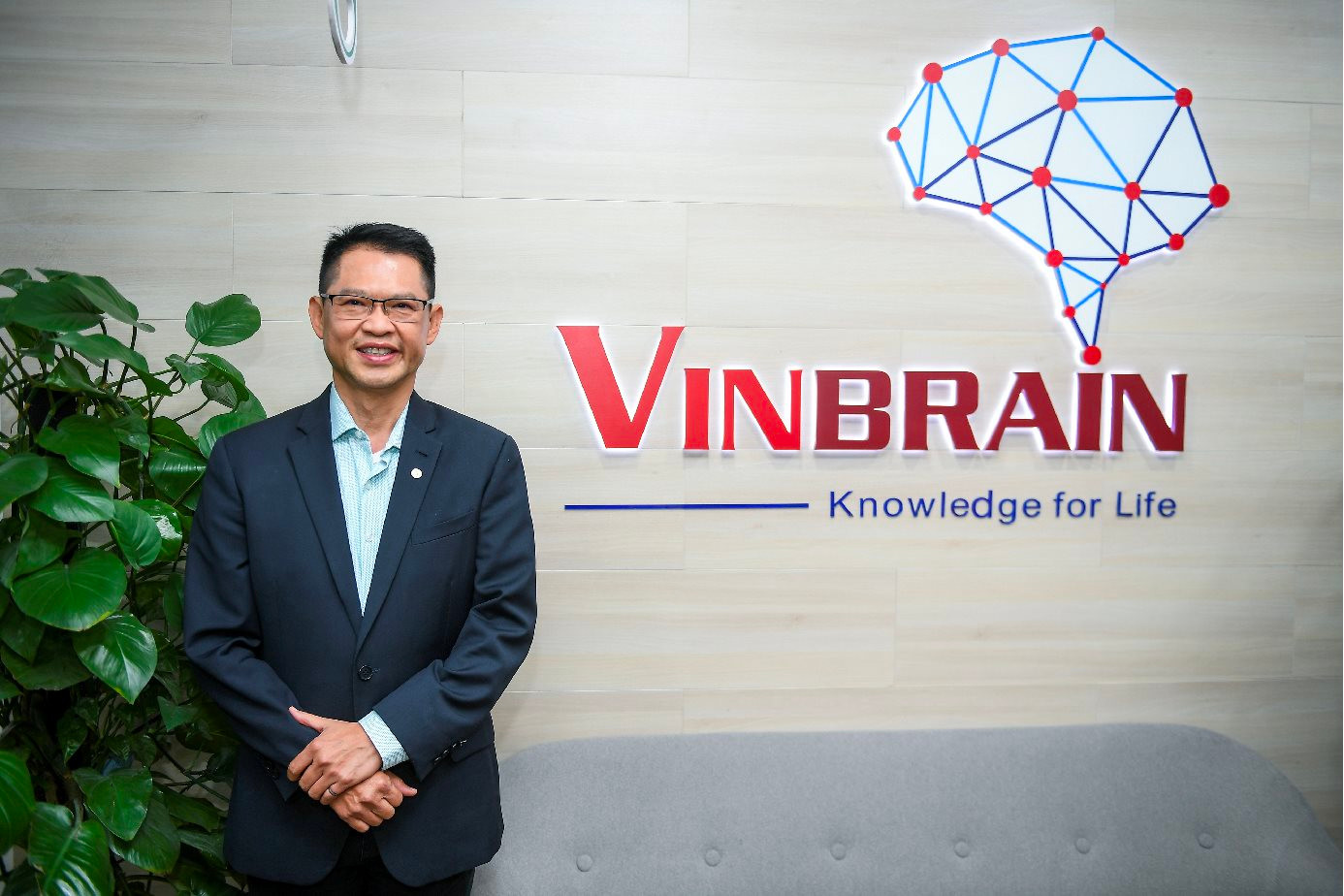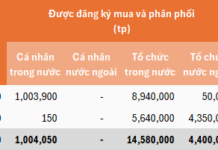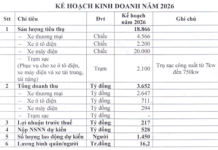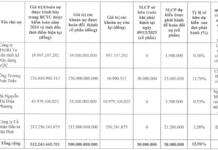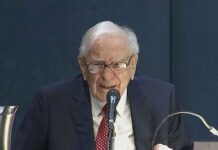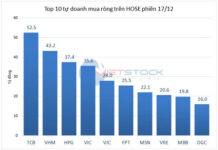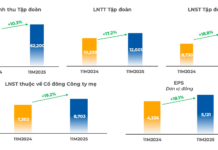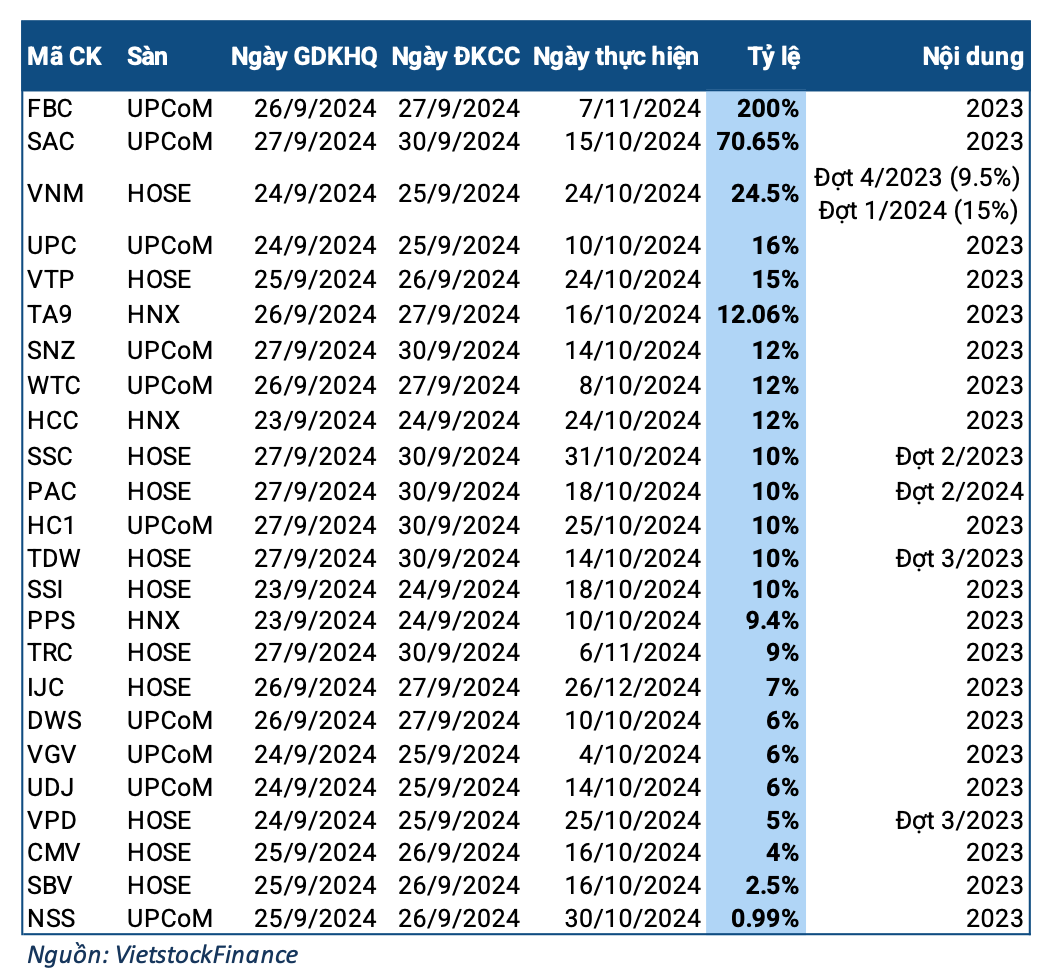Dr. Truong Quoc Hung – CEO of VinBrain walks to work every day. In particular, in the room of the former AI Director at Microsoft (USA), his desk is not like the usual ones. It is very high and there is no chair, because Mr. Hung always stands while working. Initially, only the CEO used this strange table, but now every department of VinBrain has one.
“Working while standing will make us more dynamic, not feeling tired like when sitting. It is like the culture of VinBrain: always active. No AI is perfect from the beginning, it is like humans, always have to learn, change, continue to improve and fine-tune” – Mr. Hung said.
Founded in 2019 with a charter capital of 30 billion VND, by 2023, VinBrain has increased its scale by over 20 times and made breakthroughs with AI products in the medical field called DrAid. They developed DrAid in 3 strategic directions: Comprehensive X-ray Screening Group; Cancer Diagnosis and Treatment Group; and a group solving diseases of the century such as tuberculosis, congenital anemia (Thalassemia).
VinBrain is also one of the first companies to commercialize AI products in health on the international market.

As AI Director at Microsoft in the US, why did you decide to come back to Vietnam?
In the summer of 2018, my mother had a stroke and I returned to Vietnam to take care of her. When I went to the hospital, I saw many people suffering. They had to travel from rural areas to the city, line up from 3am to get a number and wait until noon to see the doctor for only 5 minutes. Then they return to their hometown, some even have to bring their children along. It saddened me.
Working at Microsoft, we could be good at technology, create economic value, but I think I need to use this technology knowledge to serve more people, for my own people first. I also hope for a future that brings the value of Vietnamese intellect abroad. If we can do that, it will create motivation for our young people to reach out to the world.
So I thought of the AI problem for healthcare. A few friends introduced me to the Chairman of Vingroup. In our first meeting, as soon as he heard me talk about the problem of saving lives, Mr. Vượng immediately decided that I should quit Microsoft and come to Vingroup the following month.
At that time, I didn’t know much about Vietnam, even about Vingroup or Chairman Vượng because I had been living abroad for 26 years. But I saw here a great national spirit, which created a sense of empathy between us.
In the end, this is a great opportunity because Mr. Vượng has created a playground for me to bring valuable values to society. So, I did it. Of course, I’ve been with Microsoft for decades, it’s not just about quitting like he wanted. It took a few months to complete the work, and when everything was settled, I returned to Vietnam and became the first personnel of VinBrain.
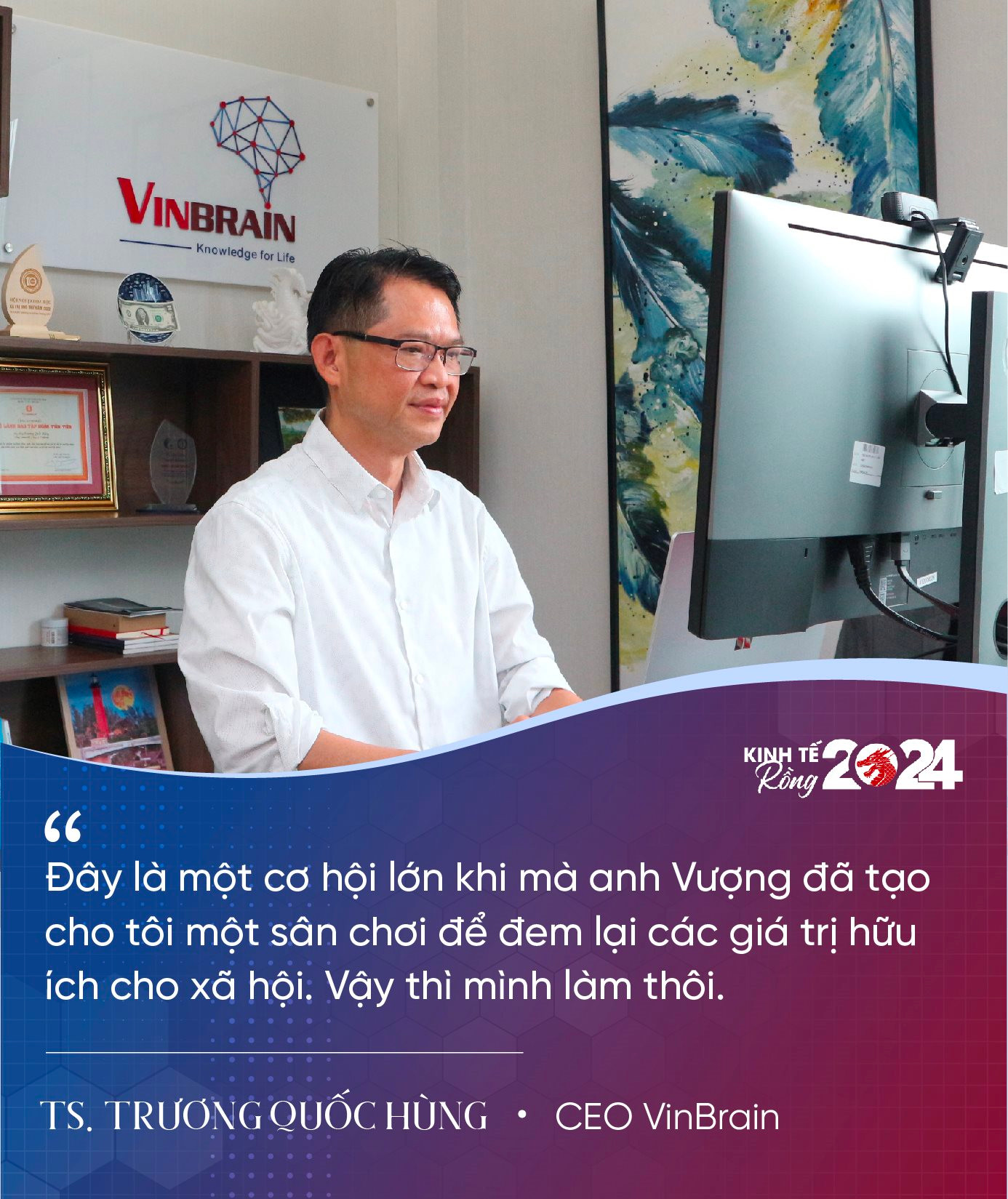
AI in healthcare is evaluated as much more complex than other types of AI. What did you see in this market to decide to proceed?
The first thing I think of when applying AI in healthcare is saving lives. Saving lives starts from supporting early detection of diseases, especially cancer. Thanks to early detection, early treatment, the patient’s life can last longer. This alone can create great social value.
For doctors, if you look deeper, you will know that a radiologist has to get up early every day to read hundreds of medical records. Although they only examine the patient for 5 minutes, they have to study the records, look at X-ray images, CT images… So AI will perform the screening step to help the doctor prioritize examining people with abnormal signs. The doctor will no longer have to read all 100 images, they only need to read about 50-60 images.
Another problem is tuberculosis. In the past, to screen for tuberculosis, doctors had to use the method of taking phlegm from the body and then performing a PCR test. After 1-2 weeks, if it turns out that this person has TB, the hospital will notify for prescription. Such a process costs about 50 USD, but now, from the screening with AI and then combining with DrAid for diagnosis, prescription, this cost can be reduced to less than 1 USD, that is, a reduction of 50 times.
I always believe that products that create social impact will lead to economic impact, rather than just thinking about making money first.

VinBrain has all the favorable factors to create the product.
Firstly, we have to collect raw data, that is, medical image data from patients’ diseases. After the data is cleaned, any non-qualified images are removed, the specialized doctors will perform labeling, that is, delimiting tumors, classifying what type of tumor it is, labeling those images, for example: where this tumor is, what size it is…
Such a labeled data set is put into the machine learning process to produce a model. This model is continuously evaluated, quality assessed based on Golden Standard criteria. When it meets the desired standards, it starts to be put into experiments, that is, tested in hospitals that VinBrain cooperates with, currently about 150 hospitals in Vietnam and internationally.
The collected data is not limited to Vietnam, it must be at a global scale. Up to now, VinBrain has taught its machines 33.544 million images worldwide including Vietnam, the US, Europe, India, and China…
Only then can VinBrain be the pioneering company in AI. And to use DrAid in the international market, ‘go global’, we must achieve FDA certifications from the US.
This requires a lot of effort, time, and money. VinBrain is the first Southeast Asian unit with FDA for pneumothorax and is now waiting for the next FDA certification for liver cancer.
I often tell my team not to do what others have done too much, but if no one has done it yet, I will do it, that’s when we create a difference.
Do you have any difficulties in accessing and collecting data in Vietnam?
At first, doctors and hospital leaders also expressed concerns about what we would do with the data. We approached by using non-identified data, that is, we didn’t know which image, which medical record belonged to whom.
At that time, it became data that could only be used for research, there were no information security issues. Another convenience we have for data access is the credibility of Vingroup. Importantly, VinBrain is a highly specialized unit, when in contact with doctors, we really build trust and they become more open.
In fact, during the Covid period, Vinbrain’s AI was proven effective. Since there was no vaccine, our team went to infected areas to collect data, teach machines, and then provided it for free to the Ministry of Health, helping cities like Ho Chi Minh City, Bac Giang solve many problems.
For example, in a period of very few ventilators in Vietnam, hundreds of thousands of people were infected but there were only a few thousand ventilators. VinBrain’s AI assessed to determine whether patients need ventilators or not, how many days they need to use the machine. And so, the machines were optimally distributed to those in need.
Another example, when the health force was overloaded, AI assessed which areas in Ho Chi Minh City had the highest number of infections, which areas were expected to have more and severe infections… to allocate the medical force there. For the areas that would turn from “red to green” in the next five days, the medical force will be withdrawn from there.
I said this to prove that to gain trust, it is a process. Both VinBrain and Vingroup have a spirit that I can call “give first”, meaning that we must give first, then we will have the chance to reap and create social impact.
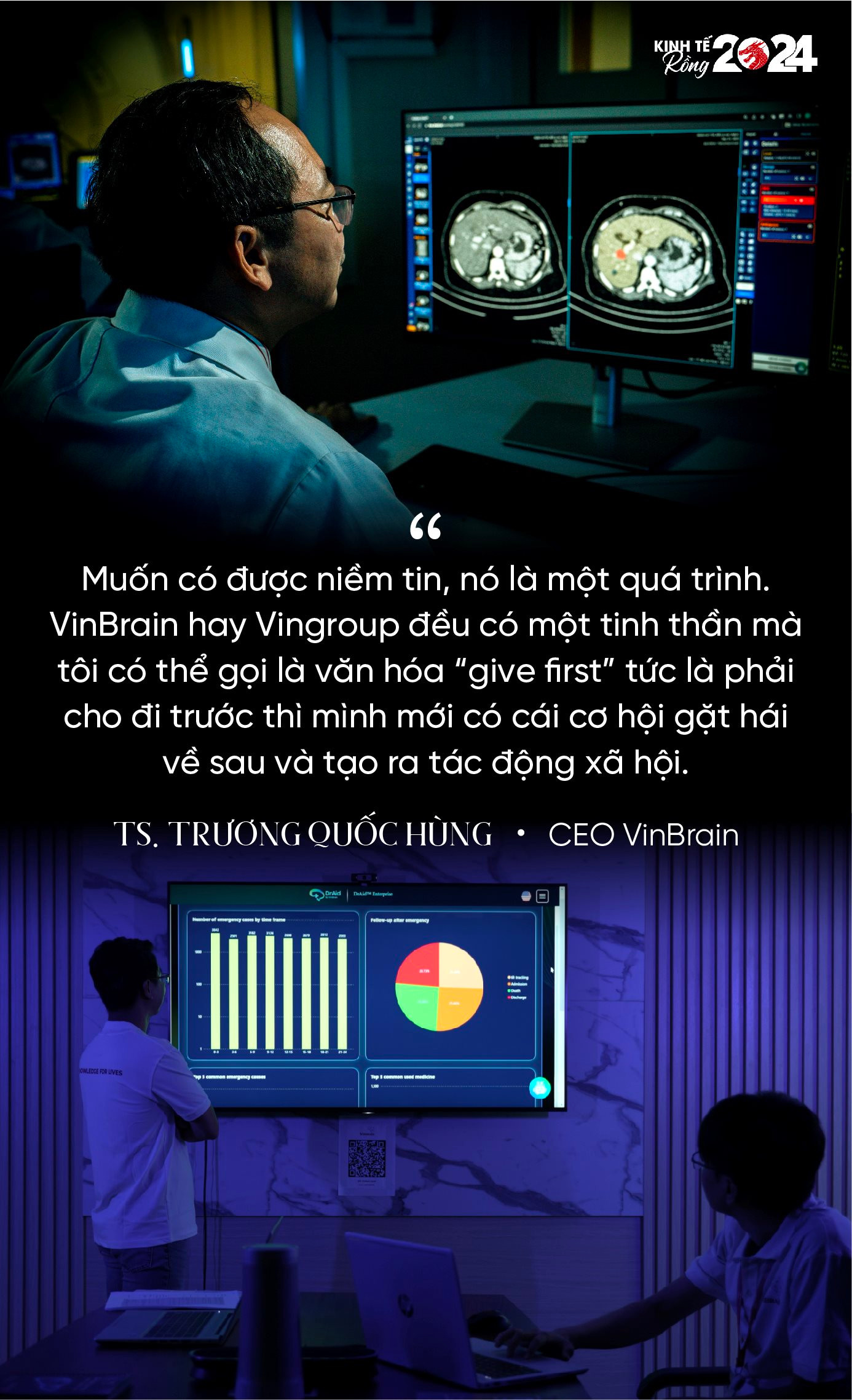
How did the first contracts of VinBrain go?
The first hospital to use VinBrain’s products is Vinmec. Up to now, there have been nearly 100 hospitals, both public and private, using our products, including DrAid.
The first customer in the US to use DrAid ™ Chest X-ray is Nutex Health. This is a hospital system that focuses on emergency and healthcare. At night, patients come to the emergency room but the doctors are not there to read the images, so AI becomes a handy assistant to screen whether the patient has any dangers, especially pneumothorax. If pneumothorax is not handled in time within 24 hours, the patient will die, so when it is determined early, they will be out of danger. If through screening, no problems are found, send the patient home to save time.
To commercialize a product in the US as such, FDA certification is required. We are also applying for certifications in Europe and other markets, focusing on Indonesia and Singapore.
This requires a lot of effort, time, and money. Vinbrain is the first unit in Southeast Asia with FDA for pneumothorax and is now waiting for the next FDA certification for liver cancer.
I say this to illustrate that to be a pioneer and different, you have to invest.
Amazon was founded in 1993 and did not make a profit until 2010. It is a representative in e-commerce (TMĐT), which cannot be more complicated than AI.
Doing AI is also different from the race for money PMH customers in e-commerce, it lies in the fact that the company’s products must be unique, different, high quality, complete data from many countries, and how the company scales up. When those are achieved, our product will become dominant and the company will have high value.
Continuing, we stand on the shoulders of giants by signing with Microsoft, Nvidia… as the technology provider.
Until now, the fact that international customers pay to use VinBrain’s products is an affirmation of quality.
How will VinBrain’s plan for 2024 be like and when is the company expected to make a profit?
In 2025, the company is expected to make a profit. This is also a fast pace compared to the world in the field of AI.
In 2024, we will focus on deep deployment of product sales, developing a distribution system after we have FDA. After that is turning raw data from all Vietnamese hospitals into hospital assets.
Previously, all hospitals realized that they had a lot of data but didn’t know what to do with it. So now that it has become an asset, bringing new values, they will place orders with VinBrain. VinBrain will be the one to do the architecture, acting as an advisor, doing features according to customer needs.
Thank you for your sharing!
